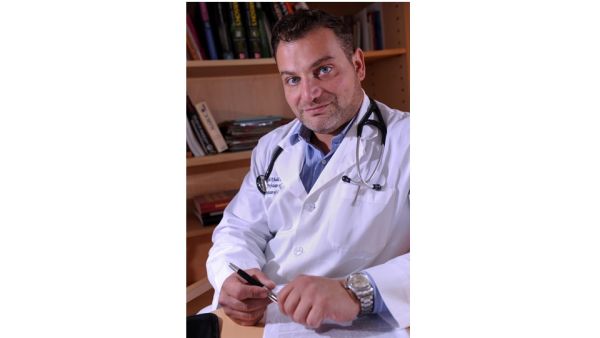WCM-Q study offers new insight into molecular mechanisms that link type 2 diabetes with cardiovascular disease

A new study by researchers at Weill Cornell Medicine-Qatar (WCM-Q) has unveiled significant insights into the dysregulation of long non-coding RNA (lncRNA) gene expression pathways in monocytes of patients with type 2 diabetes (T2D) who also suffer from cardiovascular disease (CVD).
The research was conducted in collaboration with Hamad Medical Corporation (HMC) and Weill Cornell Medicine in New York and led by Dr. Charbel Abi Khalil, associate professor of medicine at WCM-Q.
Monocytes are a type of white blood cell that play a pivotal role in the development of cardiovascular complications in T2D patients. The study investigated the changes in lncRNA genes induced by diabetes in patients with CVD, long-duration diabetes, and poor glycemic control.
Researchers conducted paired-end RNA sequencing on monocytes from 37 non-diabetic controls and 120 T2D patients, 86 of whom had either macrovascular or microvascular disease, or both. Monocytes were sorted from peripheral blood using flow cytometry, and their RNA was purified and sequenced. Utilizing advanced bioinformatics tools, the team analyzed the data to identify differentially expressed genes (DEGs) and lncRNAs highly associated with diabetes-related expression networks.
The study found two significantly upregulated lncRNAs and one significantly downregulated lncRNA in T2D patients compared to non-diabetic controls. Pathway analysis on DEGs revealed networks affecting cellular movement, growth, and development. Co-expression analysis identified a key diabetes network-associated lncRNA. Further analysis within T2D patients and CVD revealed one lncRNA upregulated in monocytes from patients with microvascular disease without clinically documented macrovascular disease. The study also identified specific lncRNAs associated with long-duration diabetes and poor glycemic control.
“This research represents a significant step forward in understanding the molecular mechanisms that link T2D with cardiovascular disease. Identifying these specific dysregulated lncRNAs and their associated pathways provides a clearer picture of the pathophysiology and opens up new possibilities for targeted therapeutic interventions,” said Dr. Abi Khalil.
The study was funded by the Biomedical Research Program (BMRP) at WCM-Q and approved by the Institutional Review Board of WCM-Q (study 13–00023) and HMC (Study 14053/14).
The paper, titled ‘Dysregulation of long non-coding RNA gene expression pathways in monocytes of type 2 diabetes patients with cardiovascular disease,’ was published in the renowned medical journal Cardiovascular Diabetology. It can be accessed online at https://cardiab.biomedcentral.
Background Information
Weill Cornell Medical College in Qatar
Weill Cornell Medicine - Qatar is a partnership between Cornell University and Qatar Foundation. It offers a comprehensive six-year medical program leading to the Cornell University M.D. degree with teaching by Cornell and Weill Cornell faculty and by physicians at Hamad Medical Corporation (HMC), Aspetar Orthopedic and Sports Medicine Hospital, the Primary Health Care Corporation, the Feto Maternal Center, and Sidra Medicine, who hold Weill Cornell appointments. Through its biomedical research program, WCM-Q is building a sustainable research community in Qatar while advancing basic science and clinical research. Through its medical college, WCM-Q seeks to provide the finest education possible for medical students, to improve health care both now and for future generations, and to provide high quality health care to the Qatari population.






